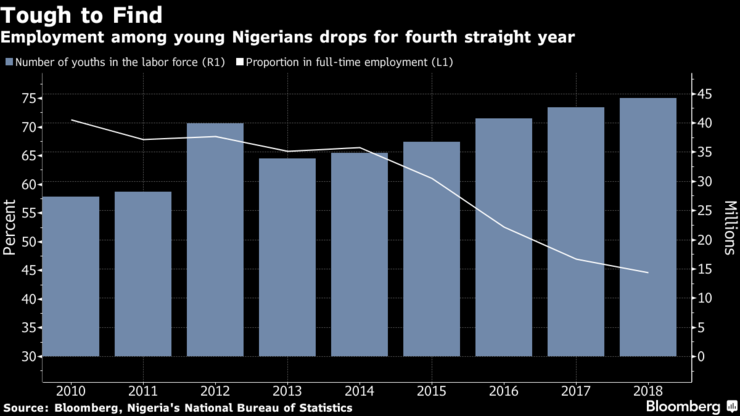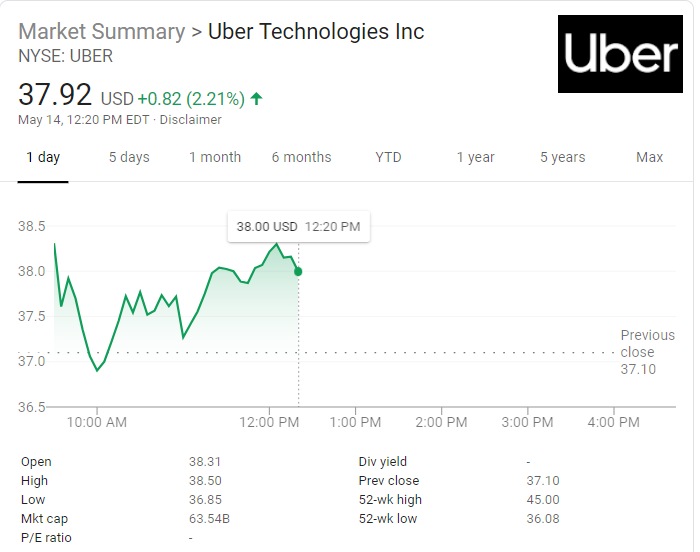Nigeria is yet to recover FULLY from the Great Recession of 2008. While many continue to look at the stock market for signs, the sign that matters is evident – we are losing a generation of young people on acute sustained unemployment. Yes, ‘Youth unemployment and underemployment was 55.4% in third quarter of 2018, leaving more than half of the country’s largely youthful population idle most of the time.’ Look at the trajectory of the proportion of full-time youth employment – not a good pattern!
The proportion of Nigerians younger than 35 in full-time jobs has dropped consistently since 2014, according to data from the nation’s statistics agency. Youth unemployment and under-employment was 55.4% in third quarter of 2018, leaving more than half of the country’s largely youthful population idle most of the time. Finding a job in Africa’s biggest oil producer is getting tough for everyone, with the average unemployment rate rising to 23.1% last year from 5.1% in 2010 as a sluggish economy fails to keep up with a fast-growing population
As Emir of Kano noted, one does not need a seer to model the future implications for the nation. I have called this the gray lizard.
In America, they talk of black swans: ” high-impact risks that are highly improbable and therefore almost impossible to predict”. Yes, “an unpredictable or unforeseen event, typically one with extreme consequences.” That is it: “something extremely rare”. So, because it is rare, you do not (usually) plan for it. Arab Spring was a black swan as the leaders of North Africa could not have modeled that risk.
In Nigeria, we do not just have black swan. We have gray lizard. It is a high impact risk, that is highly probable and evidently visible but totally, widely and irresponsibly ignored. The massive youth unemployment in Nigeria is a gray lizard. Governments see it daily but it is totally ignored.
Going forward, I will make my platforms available to share jobs – all jobs will be archived here. If you are looking for jobs, FOLLOW me, and if you have, please InMail or share with my team on click. Let us see how to help these young people.

My case remains: the Nigerian government must stimulate the economy through extended and massive injection of loan guarantees to help small businesses grow to absorb these young people.






